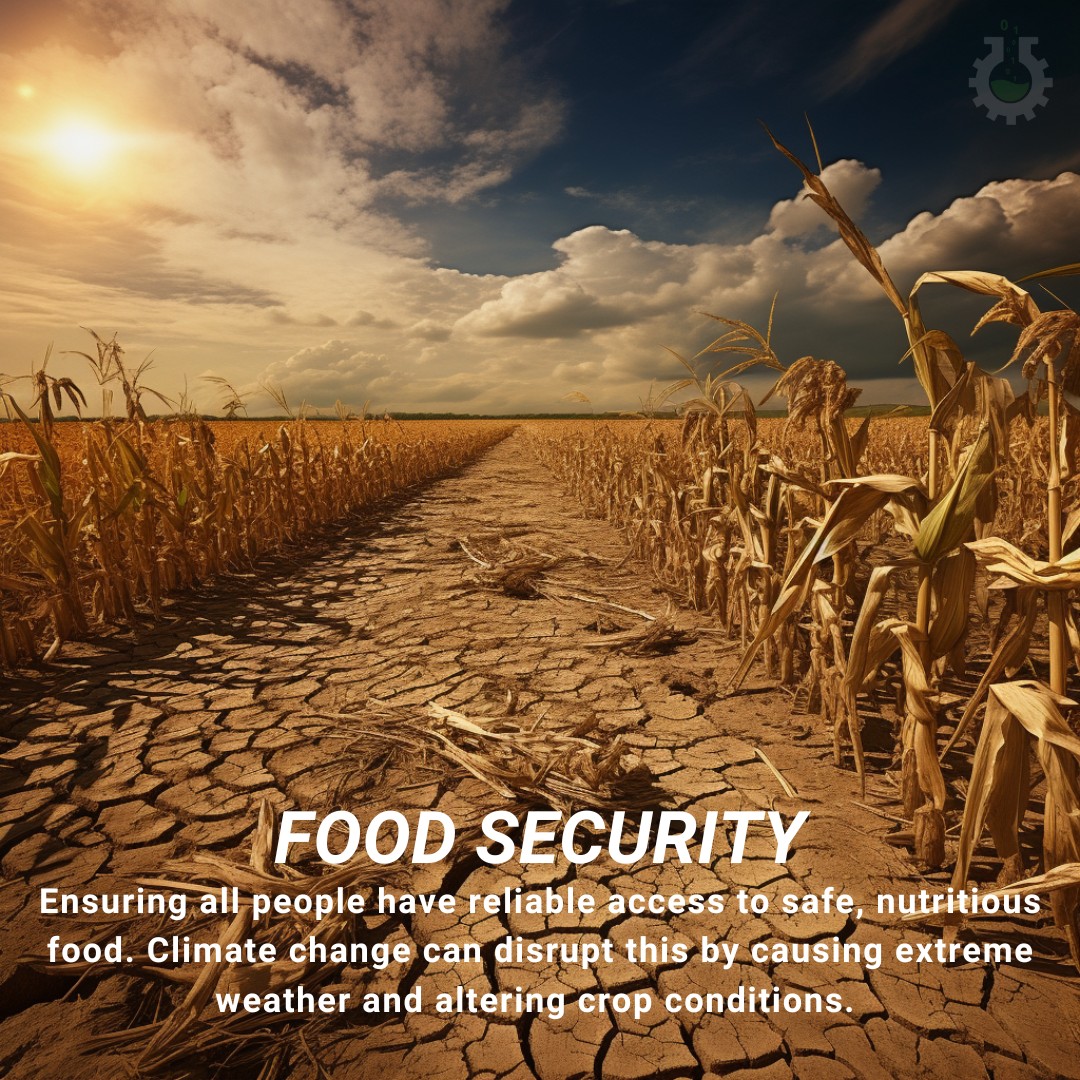October 11, 2023
Climate Change Poster Collection of the Day – Food Security
Book a Demo
Today’s Climate Change Poster Collection highlights Food Security. The world has seen a drastic increase in acute food insecurity, surging from 135 million people in 2019 to a staggering 345 million across 82 nations by June 2022. This surge in food insecurity has been largely attributed to the ongoing Ukrainian war, supply chain disruptions, and the economic impacts of the COVID-19 pandemic. As an emerging crisis, food insecurity is not only influenced by political and economic instability, but also by climate change, which is increasingly acknowledged as a significant contributor to global food insecurity.
Climate change is known to alter weather patterns, trigger severe weather events, and lead to crop damage, all of which contribute to an increase in food prices. These climate-induced alterations pose significant threats to the global food sector, a sector which also, paradoxically, plays a crucial role in climate change and biodiversity loss due to its substantial contribution to greenhouse gas emissions.
The impact of climate change on food security is particularly severe for individuals residing in Sub-Saharan Africa, South Asia, and Southeast Asia. These regions house the majority of individuals most vulnerable to climate change’s effects on food security. In these areas, the adverse effects of climate change, such as crop failures and rising food prices, can exacerbate poverty.
The future implications of climate change on farming and food security are potentially severe. With rising temperatures, more frequent extreme weather events, and the proliferation of pests and diseases, agricultural production could be severely impacted. This is particularly the case in areas with limited water resources. Estimates suggest that without mitigation strategies, declining crop yields could push an additional 43 million Africans into poverty by 2030.
However, there are climate change adaptation strategies that can be implemented to mitigate these effects on agriculture. These strategies include enhancing water efficiency, transitioning to less water-intensive crops, and improving soil health. By increasing drought resilience and decreasing dependence on chemical fertilizers, these strategies can help to counter the impact of climate change on food security.
In response to this pressing challenge, the World Bank Group is supporting climate-smart agriculture through its Climate Change Action Plan (2021-2025). This plan involves policy and technological interventions designed to increase productivity, improve resilience, and lower greenhouse gas emissions. This multi-pronged approach is crucial in the fight against food insecurity, as it recognizes the interconnectedness of climate change, agricultural practices, and global food security.
Discover an inspiring collection of climate change posters.



